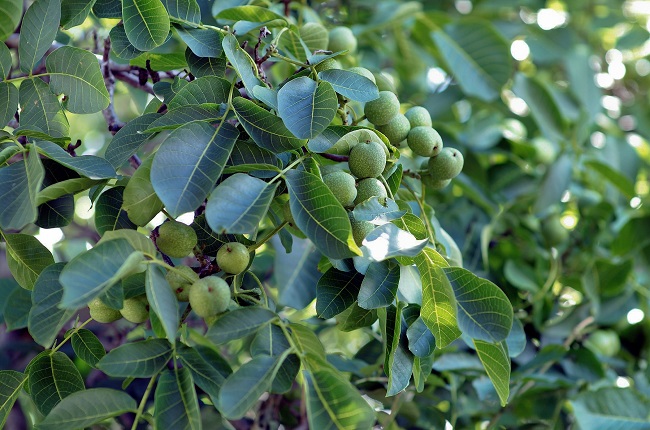
If you have one or more black walnut trees in your yard, you may have noticed that some plants have difficulty surviving near the trees.
The roots of black walnut trees produce a toxic substance called juglone which adversely affects plants that are sensitive to it. Many plants are highly sensitive to juglone, but there are some that will tolerate it.
Plants that cannot tolerate juglone will show symptoms such as yellowing, wilting foliage. Juglone acts as a respiration inhibitor, sapping a plant’s energy and leaving
it unable to breathe. Plants that cannot tolerate juglone will eventually give up and die. While juglone primarily affects plants, some people are highly sensitive to it as well.
Although juglone is produced in the trees’ roots, all parts of a black walnut tree contain the toxin, with the strongest concentration in the buds and nut hulls. Black walnut trees have a habit of dropping leaves, nuts, and twigs from late summer through autumn and this debris adds to the juglone levels in the soil beneath the trees. Rain dripping from the leaves also adds juglone to the soil, making the entire drip zone beneath the tree a hazardous environment for juglone-sensitive plants and some people.
Cutting down the offending tree won’t solve the problem, as the roots will continue to release juglone into the soil, making the area toxic for several years after the tree is gone. Debris from black walnut trees should not be added to compost, nor should the wood or bark be used for mulch.
Mike McGroarty is the owner of McGroarty Enterprises and the author of several books. You can visit his website at Freeplants.com and read his blog at Mikesbackyardnursery.com.
Related Articles & Free Email Newsletter Sign Up
6 Easy Ways to Create a Beautiful Home Landscape
How to Grow Japanese Red Maple Trees from Seed


Comment here